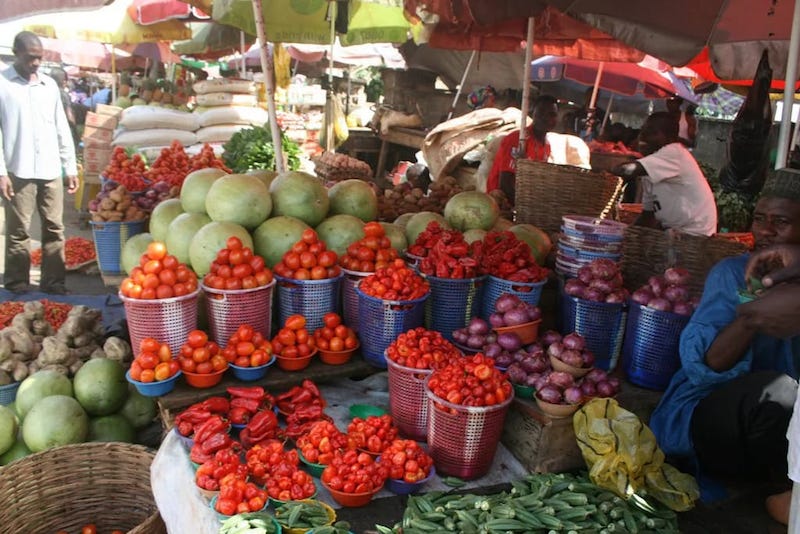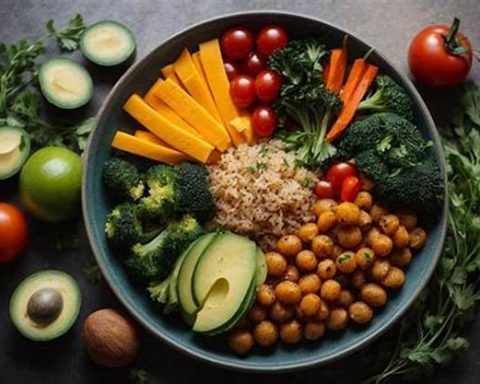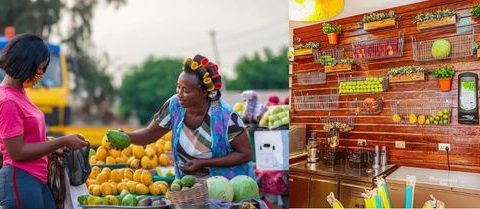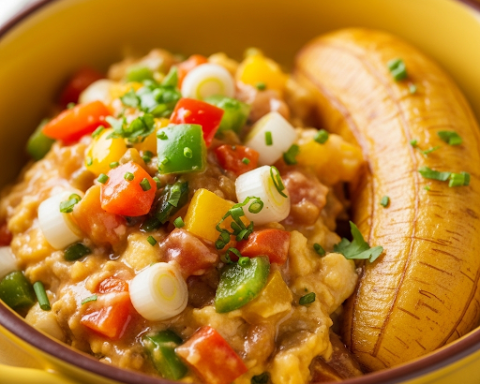In a bustling market in Agege, Lagos, a woman haggles for a bundle of ugu (pumpkin leaves), calculating how to stretch her weekly food budget without compromising her family’s health. Across the country, scenes like this play out every day as Nigerian consumers grapple with one of the toughest questions of our time: Can I eat healthy without breaking the bank?
In a nation where inflation continues to squeeze household income and food prices are on a relentless rise, maintaining a nutritious diet can feel like a luxury. Yet, many Nigerians, especially those in urban centers, are finding ways to make wellness work on a budget. They are adapting, improvising, and redefining what it means to eat well in an economy where affordability often trumps choice.
Join our WhatsApp ChannelIn this article, we explore the innovative ways consumers are navigating food choices amid rising costs and what it means for the future of food businesses in Nigeria.
The High Cost of Eating Healthy
The myth that healthy food is always more expensive often holds true in Nigerian cities. A medium-sized basket of fruits, apples, bananas, pineapple, and watermelon, can cost upward of ₦8,000. A single bottle of cold-pressed juice? ₦3,000. Organic rice and unrefined oils are sometimes double the price of their conventional counterparts.
Market data from 2024 showed that prices of healthy staples such as beans, vegetables, fish, and whole grains rose between 18% to 32% year-on-year. Many households earning less than ₦100,000 per month struggle to maintain balanced diets, especially when bulk buying of cheaper carbs like white rice or spaghetti appears to offer better short-term value.
Despite this, Nigerian consumers are not giving up on wellness. Instead, they’re reshaping what “healthy” looks like in practical, cost-conscious ways.
Smart Substitutes and Local Superfoods
Affordability has driven a creative food culture. Rather than splurging on imported health brands or expensive supplements, consumers are rediscovering local alternatives with powerful nutritional profiles:
Moringa, dubbed the “miracle tree,” is used as a tea, smoothie additive, or soup enhancer and is far cheaper than imported superfoods.
Tiger nuts, packed with fiber and healthy fats, are sold for as little as ₦500 per cup and used to make milk or snacks.
Sorghum and millet, indigenous grains rich in fiber and minerals, are regaining popularity over polished white rice.
Ugwu (pumpkin leaves), scent leaf, and waterleaf, all inexpensive and widely available, form the green core of many low-budget, nutrient-dense meals.
In this context, healthy eating is becoming more localized, rooted in tradition but rebranded for modern health consciousness.
The Rise of Meal Prepping and Budgeting Culture
Urban Nigerians, especially young professionals and small families, are embracing meal prepping as both a money-saving and health-conscious strategy. Social media has played a huge role in this shift. Hashtags like #NaijaMealPrep or #HealthyOnABudget showcase meals prepped for the week, often for less than ₦10,000.
Some use Sunday nights to portion stir-fried vegetables, grilled chicken, beans, and brown rice into containers for lunch and dinner. Others create freezer-friendly soups like okra, egusi, and ogbono that can be stretched across multiple meals.
READ ALSO: Establishing Sustainable Healthy Eating Habits
Meal prepping reduces impulse buying, controls portion sizes, and helps avoid costly fast food. As inflation bites harder, the trend is gaining traction for fitness buffs and budget-conscious families and students.
Street Food Gets a Makeover
Historically, Nigerian street food has been heavy on oil, carbs, and salt. But a quiet transformation is underway. Some vendors are tweaking menus to include healthier, low-cost alternatives:
Grilled fish and plantains instead of deep-fried options
Fruit cups and smoothies on wheels in parks and markets
Vegetarian “moi moi” made with beans and veggies, now selling beside akara and puff-puff
READ ALSO: Misleading ‘Low Fat’ and ‘Sugar-Free’ Labels On Food Products
Zobo with ginger and lemon, marketed as a detox drink, goes for ₦300 to ₦500 in major cities
This democratization of wellness is creating a new category: affordable healthy street food, and it’s a space ripe for small-scale entrepreneurship.
Business Implications: Health for the Masses
Food businesses are starting to take notice of these budget wellness trends. Fast-casual eateries are adding more local vegetables and protein-rich sides to their menus. Meal subscription startups now offer “budget plans” targeted at middle-income workers. Even supermarkets are creating “healthy but affordable” product sections.
Here’s where the opportunity lies: healthy food doesn’t have to be elite. Brands that can cater to the average Nigerian, by simplifying packaging, adjusting portion sizes, sourcing locally, and maintaining nutritional quality stand to win.
Product innovation at a lower price point is the golden opportunity. For instance:
₦200 energy bars made with oats, coconut, and peanuts
₦100 spice mixes for nutritious soups
Budget cooking oil blends that balance affordability with lower cholesterol options.
Startups and local brands that can scale these offerings without compromising quality will not only build loyal customer bases but also push the wellness revolution into the mainstream.
Redefining Wellness for Real Life
In today’s Nigeria, wellness isn’t about imported supplements or luxury gym smoothies. It’s about making smart choices with limited resources, swapping, substituting, prepping, and reimagining what healthy means.
For consumers, it’s a journey of empowerment. For businesses, it’s a call to innovate at the intersection of health and affordability. The future of healthy eating in Nigeria isn’t just premium, it’s practical, local, and within reach for the everyday Nigerian.
Amanze Chinonye is a Staff Correspondent at Prime Business Africa, a rising star in the literary world, weaving captivating stories that transport readers to the vibrant landscapes of Nigeria and the rest of Africa. With a unique voice that blends with the newspaper's tradition and style, Chinonye's writing is a masterful exploration of the human condition, delving into themes of identity, culture, and social justice. Through her words, Chinonye paints vivid portraits of everyday African life, from the bustling markets of Nigeria's Lagos to the quiet villages of South Africa's countryside . With a keen eye for detail and a deep understanding of the complexities of Nigerian society, Chinonye's writing is both a testament to the country's rich cultural heritage and a powerful call to action for a brighter future. As a writer, Chinonye is a true storyteller, using her dexterity to educate, inspire, and uplift readers around the world.














